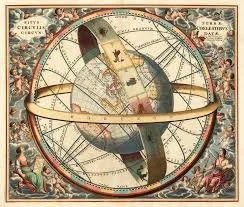How to Find the Right Astrologer for You
Choosing the right astrologer is a vital step in having a reading that feels meaningful and insightful. Astrology is a vast field with many approaches, and astrologers vary widely in their methods. Asking the right questions ensures that you connect with someone whose practice aligns with what you're looking for. Here’s a guide to the key questions to ask, what they mean, and what to watch out for.
1. Do They Use Modern or Traditional Astrology?
What This Means:
Astrology is practiced in two main ways, modern and traditional, which differ in focus and tools.
Modern Astrology:
Modern astrologers focus on self-awareness and personal growth. They often include the outer planets (Uranus, Neptune, and Pluto) and aim to help you understand your personality, emotions, and potential.Traditional Astrology:
Traditional astrologers focus on external events, timing, and predictions. They emphasize the roles of planets as rulers and often exclude outer planets. The readings are more situational, dealing with specific life events or external circumstances.
What You Should Know:
Blending modern and traditional approaches is becoming common, as traditional astrology has been reintroduced through projects like Project Hindsight. Fully transitioning to traditional astrology requires extensive study, and it’s worth asking how much they’ve unlearned and relearned if they say they practice traditional methods.
What to Ask:
“Do you use modern or traditional astrology, and how does that influence your readings?”
“If you practice traditional astrology, how did you learn it?”
2. Do They Use Sidereal or Tropical Astrology?
What This Means:
Sidereal and tropical astrology are two ways of calculating the zodiac.
Tropical Astrology:
This is the system most common in the Western world. It’s based on the Earth’s relationship to the Sun and emphasizes symbolism, archetypes, and psychological insights.Sidereal Astrology:
Common in Vedic astrology, this system aligns with the fixed stars and constellations. It focuses on karma, life purpose, and spiritual growth.
Western vs. Vedic Astrology:
Vedic astrology, or Jyotish, is deeply rooted in South Asian culture and tradition. Finding a skilled Vedic astrologer outside of that cultural context can be challenging, as it’s often passed down within families. Without that grounding, it may lack some of its depth and precision.
What to Ask:
“Do you use sidereal or tropical astrology, and why?”
3. What House System Do They Use?
What This Means:
House systems divide your chart into 12 sections, and the choice of system affects how astrologers interpret your life.
Placidus: Adjusts houses based on where you were born. Popular among modern astrologers.
Whole Signs: Gives each zodiac sign its own house, used in traditional astrology.
Porphyry: Divides houses equally by degree.
What to Ask:
“Which house system do you use, and why?”
4. How Have They Studied Astrology?
What This Means:
A good astrologer should have years of study, whether through formal training, mentorships, or self-study.
What to Ask:
“What’s your background in astrology? How did you learn your methods?”
They should be able to explain their training and approach clearly.
Red Flags to Watch For
Here are some signs that an astrologer might not be well-practiced:
Inconsistent Practices: A traditional astrologer using modern tools (like Placidus houses) might not fully understand their stated approach.
Fear-Mongering: Astrology is meant to empower, not scare. Avoid astrologers who make extreme negative predictions.
No Evidence of Study: An astrologer should have a clear background in formal study, mentorship, or dedicated practice.
Vague or Generic Readings: A good astrologer gives specific insights, not generalities that could apply to anyone.
Reliance on Mythology Alone: If an astrologer can only describe zodiac signs through myths and not their modalities, elements, and polarities, it’s a red flag. For example, Leo isn’t just about lions that rule; it’s a fixed fire sign ruled by the Sun, which explains its steady, expressive energy.
Final Thoughts
Choosing an astrologer isn’t something you need to rush. Take your time, ask questions, and make sure their approach resonates with what you’re looking for. Don’t hesitate to ask for reviews or recommendations. A trusted astrologer should be able to provide testimonials or references from satisfied clients. If you’re unsure after one reading, it’s okay to seek a second opinion. Astrology is a collaborative process, and finding the right person to guide you can make all the difference. Remember, the best astrologer for you is someone who listens, communicates clearly, and leaves you feeling informed and empowered.





